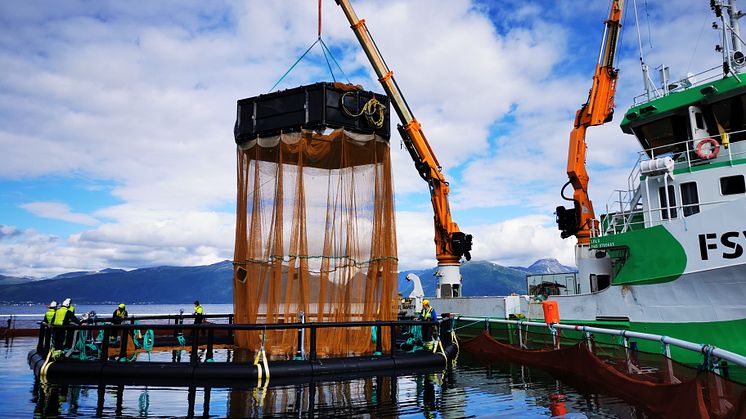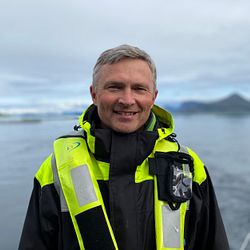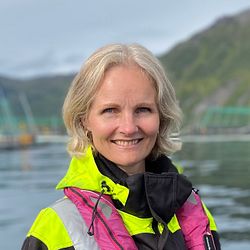
Press release -
Cermaq has stocked fish in the third version of iFarm
The iFarm project aims to improve the health and welfare of the fish in the net pens with the help of artificial intelligence. Fish have now been stocked for the third time in iFarm-net pens, and in this phase the focus is on machine learning.
iFarm is being tested in both Øksnes and Steigen in Nordland
This time it is the sea site Hellarvika in Steigen that is being equipped with the iFarm setup in the net pens. It is the same crew that was responsible for the very first iFarm fish that was stocked in Martnesvika in 2020, and they are excited to see how it will be to operate iFarm again. "With the first version of iFarm, everything was new, and we had an incredibly steep learning curve, but as we got started with operations, we think it worked out quite well," says site manager Tor Hansen at Hellarvika. "Now a number of adjustments have been made both to the set-up and to operations based on experiences gained in Øksnes, where we now have version two of iFarm, so it will be exciting to get started with operations, and to follow how the fish thrive in the third version of iFarm," says Hansen.
The sensors and sorters in the focus
While in the testing of version 1 the main focus was on establishing an understanding of how iFarm affects fish behavior and gaining basic learning about the iFarm construction, in the testing of version 2 there has been a lot of work with alternative versions of the sensor housing and operational adaptations, such as feeding the fish under a net roof, and to achieve efficient handling operations in a sea site with a lot of extra equipment in the net pens. When version 3 is now put into use, the focus will be mostly on the sensors, on data collection and machine learning, and on further development of the mechanism that sorts out fish.
"At Hellarvika, we will concentrate on the sensor arrangement to retrieve images with good quality and follow up the annotation of key parameters such as fish ID, lice, growth and fish welfare in the net pen, and on further developing sorters", says the managing director of BioSort , Geir Stang Hauge. "After a successful test of the first-generation sorter in net pens where we saw that the mechanical sorting mechanism worked with fish swimming through the system, we are now testing the second generation, and we will try to lead the fish from the sorter into another volume through a pipe. The aim is to validate that it is possible to take out individual fish according to specific sorting criteria," says Hauge.
The sorter will eventually become autonomous, so that together with the sensor system in iFarm it can make its own decisions based on defined criteria, such as the discovery of lice or wounds. It is a complicated and extensive development process, which requires the development of precise machine vision, rapid processing of large amounts of data and interaction with a mechanical sorting unit with its own control systems.
"It's complicated work, and it's work that hasn't been done before, so it's demanding, but also very exciting," says Hauge.
Facts about the iFarm project
• iFarm is a concept based on artificial intelligence and machine learning, which should make it possible to recognize each individual fish in a cage and give it its own follow-up and a separate health record. It will provide better fish health and welfare and will be a quantum leap for the aquaculture industry.
• The iFarm project is planned to last five years and is a collaboration between Cermaq and BioSort. Cermaq has been awarded 4 development concessions with iFarm.
• The first fish were released in the first version of iFarm in September 2020.
Topics
Cermaq is a leading global salmon producer driving transition of our food system towards healthier and more climate-friendly food. Our approach is transparency, performance, and partnerships, setting ambitious climate goals, innovation for clean farming, and scaling impact and ripple effects through local and global partnerships.



